Going by the size of an average ant, you might be thinking that you have nothing to worry about.
After all, they’re so small compared to you and there’s no way that they could be deadly…right?
Can an ant kill you?
Ants kill through various mechanisms. They can kill by injecting venom into their target. Ants can also kill by triggering allergic reactions and by causing sepsis through wound contamination. Death through allergic reactions is the prime cause of death by ants.
As you would expect, some ants are more dangerous than others. For one, not all ants are venomous. I
t goes without saying that those carrying venom would expectedly be more dangerous than the non-venomous ones.
In this article, we examine some of the most dangerous ants and the intricacies surrounding the threats they pose.
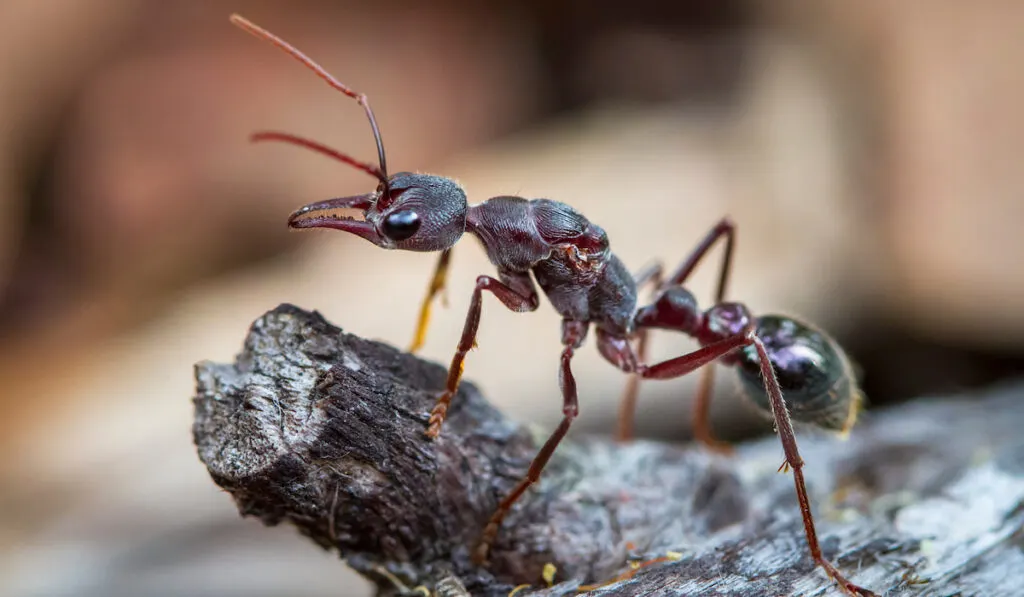
Table of Contents
Can Ants Kill You?
Ants can kill you, but before you panic, know that most of the 12,500 ant species are harmless.
So, how do the killer ants kill?
Venom
Some ants are venomous. All it takes is for them to inject their venom into their target.
Allergic Reaction
Not all ants are venomous, but the substance they release when they sting can trigger an allergic reaction.
In some people, the allergic reaction can be as mild as an itch or a wheal. But in some other people, the allergy could be as bad as anaphylactic shock.
Over 90% of the time, when a person is stung by an ant, it culminates into swelling, itching, and redness. Around 1% of the time, the sting leads to life-threatening anaphylactic reactions.
Allergy to ants is more common in adults than in children.
It is estimated that 3% of adults are allergic to ants, while only 0.4-0.8% of children are allergic to ants.
Wound and Food Contamination
Some ants, like the Pharaoh ants, contaminate their victims’ wounds or food. Either of these actions can be fatal.
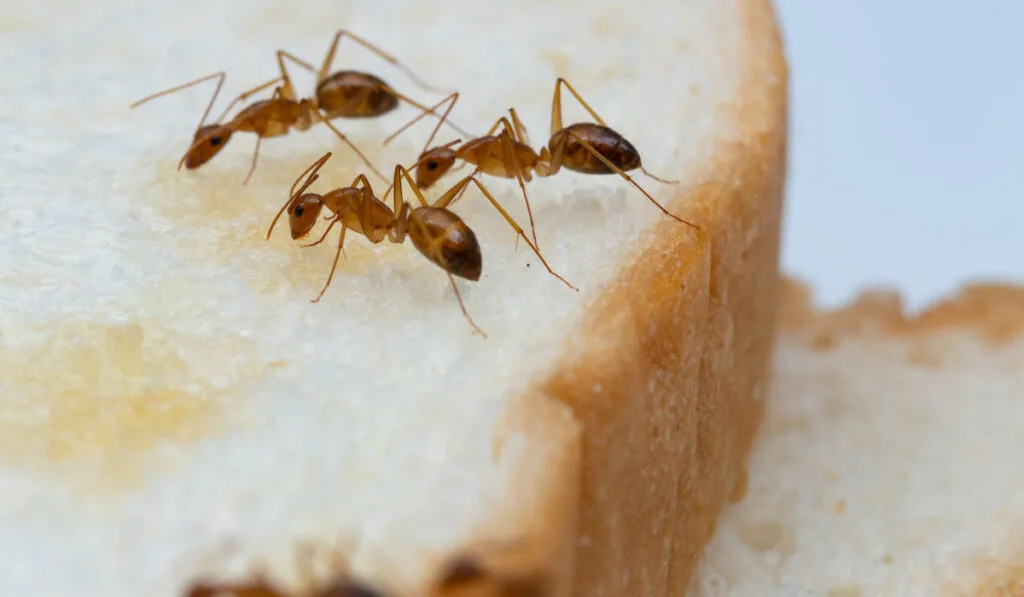
Ants that kill through this means usually carry a disease pathogen such as bacteria. They transmit pathogens when they come in contact with food or open wounds.
Overwhelming Their Victim
Although not very common, in some cases ants overwhelm their victims with their numbers.
Siafu ants, for instance, will attack in large numbers and sting their target until the target gives in and gives up.
Most Common Causes of Death by Ant
While death in humans by ant venom, allergic reaction, or contamination are rare, some ant-related deaths are more common than others.
The most common cause of death attributed to ants is allergic reactions.
How Many People Die From Ant Bites Each Year?
There are no general numbers that indicate how many people die from ant bites yearly.
However, we know that around 20-50 people die from the bite of Siafu ants yearly.
We also know that around 30 people in the US die from the bite of Fire ants every year.
It is also estimated that about 5% of people who get bitten by fire ants die from anaphylactic shock.
How Many Bites Does It Take?
If an ant’s venom is directly fatal, it could take just one bite to elicit the deadly effect. The same applies when the venom triggers an allergic reaction.
However, in cases where ants mob and overwhelm their victim, it could take multiple bites to kill their target.
All in all, the number of bites it takes depends on the type of ant.
Can a Fire Ant Kill You?
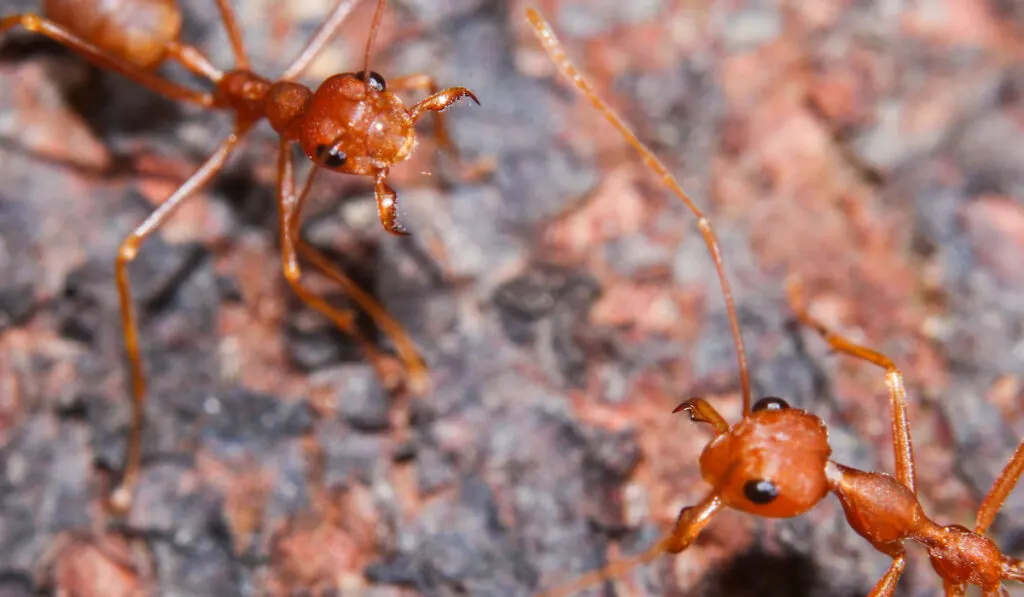
The sting from a Fire ant does not result in certain death.
For some people, it only causes pain, redness, itching, and swelling. However, in those who end up dead, it causes anaphylactic shock.
Can Ants Kill You if You Eat Them?
It is rare for humans to die as a result of ingesting ants. In fact, the common opinion is that it is safe to eat ants.
But it may not be impossible. It is possible for ants, such as Pharaoh ants, to carry pathogens that make people sick when eaten. In such situation, the ensuing sickness may be fatal.
In general, the chances of one dying from eating ants are low or non-existent.
Can Ants Get Inside Your Brain?
Ants cannot get inside your brain. The brain is covered by meninges and suspended in cerebrospinal fluid (CSF).
Even if ants enter your ear, they will most likely die. The ear has many barriers that would impede, kill, or keep ants out. The ear wax, the hairs in the ear, and the cochlea fluids are some natural barriers.
Can Ants Kill a Dog?
Ants can kill dogs in the same way they can kill humans. Small dogs, puppies, old dogs, and dogs with open wounds are at higher risk of getting killed by ants.
Smaller dogs and puppies can easily succumb to an attack by a large number of venomous ants.
Since old dogs have less fur, they can get injured more easily when bitten by ants. Their wounds may also not heal quickly, and they can get contaminated, thereby causing sepsis.
Dogs with open wounds are also prone to wound contamination that can lead to sepsis.
9 Most Dangerous Types of Ants
The following are 9 of the most dangerous types of ants you would come across.
Bulldog Ants
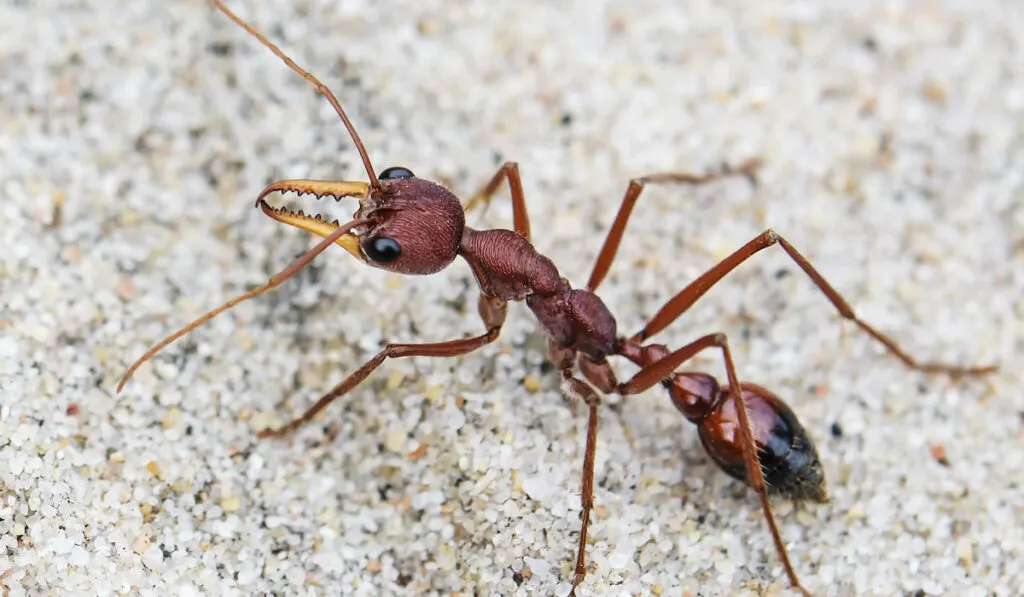
Bulldog ants are revered as the most dangerous in the world. This understandable since their venom can kill an adult man in just about 15 minutes.
Bulldog ants are peculiarly aggressive. In fact, when they attack, they go in with their jaws and stingers at once.
Bulldog ants are typically found in Australia.
Florida Harvester Ant
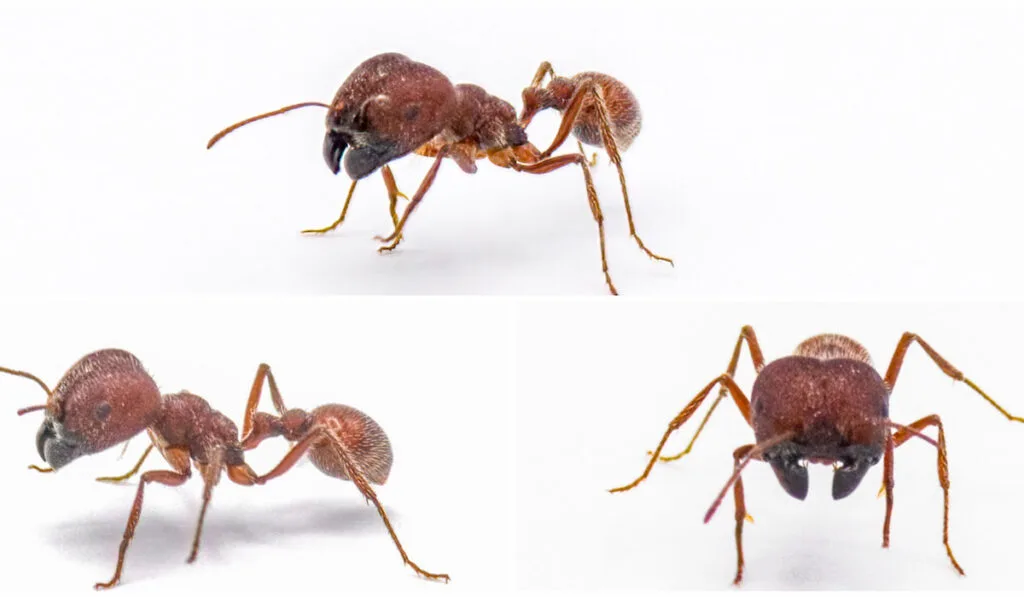
The Florida Harvester is another ant to be very wary of. The venom released by this type of ant is comparable to the venom of a Cobra.
While the ants typically appear to be harmless as they carry seeds and food, you should stay far away from them.
Florida Harvester Ants are found in North, South, and Central America.
Bullet Ants
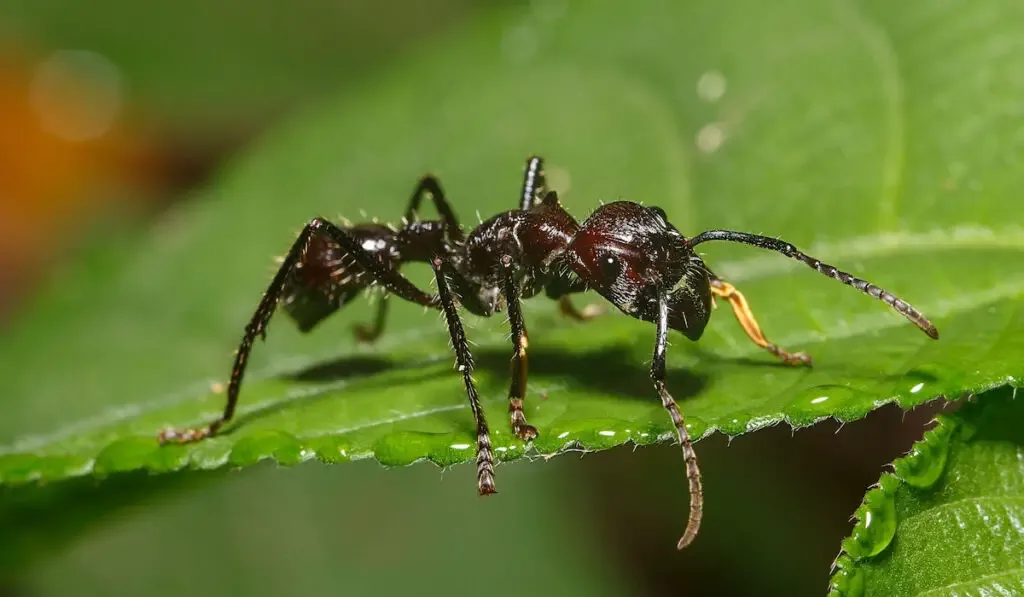
Bullet ants have the most painful stings of all ants. You can almost compare the pain felt from the sting to that of a gunshot.
Perhaps this is why they are called Bullet ants. Even worse is the fact that one could feel the pain for 24 hours.
Bullet ants are usually found in South America, and for obvious reasons, they are also called 24-hour ants.
Fire Ants
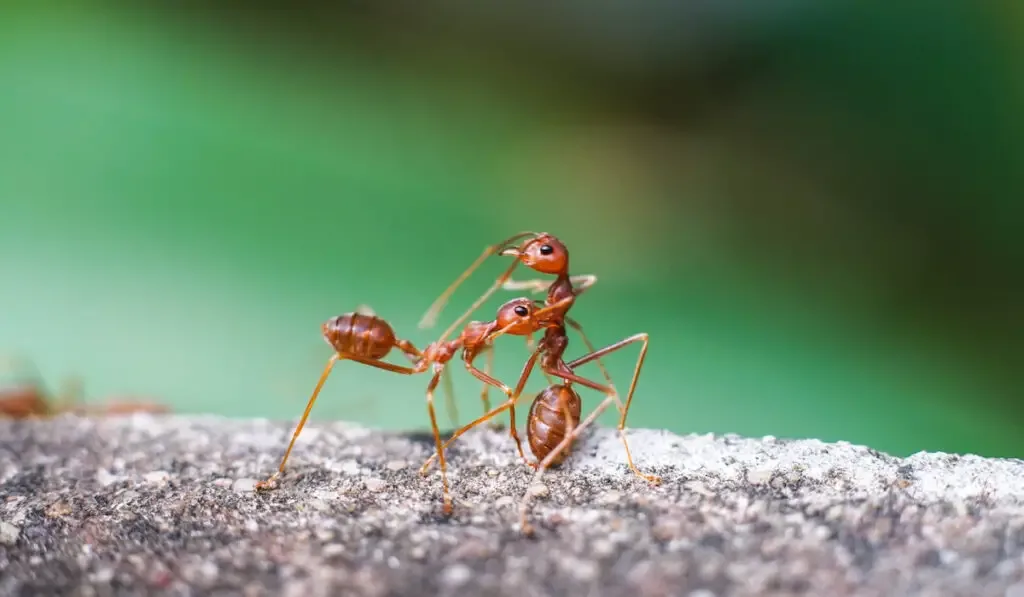
Fire ants are rather well known. They are very aggressive, and their stings are equally painful.
When provoked, Fire ants can attract more members of their group to attack you. They do this by releasing a pheromone.
Around 2-3% of people are sensitive to the sting from a Fire ant. In most cases, people bitten by Fire ants experience swelling, itching, and redness. If the site of the sting gets infected, it could become purulent.
In dire cases, people who get bitten by Fire ants go into anaphylactic shock. If you are bitten by a Fire ant, you should seek medical help immediately.
Bullhorn Acacia Ant
While the venom from the Bullhorn Acacia ant is quite useful, it could be harmful, too.
When these ants sting you, the venom will cause a burning sensation. In some cases, the outcome can be anaphylactic reaction.
Pony Ants
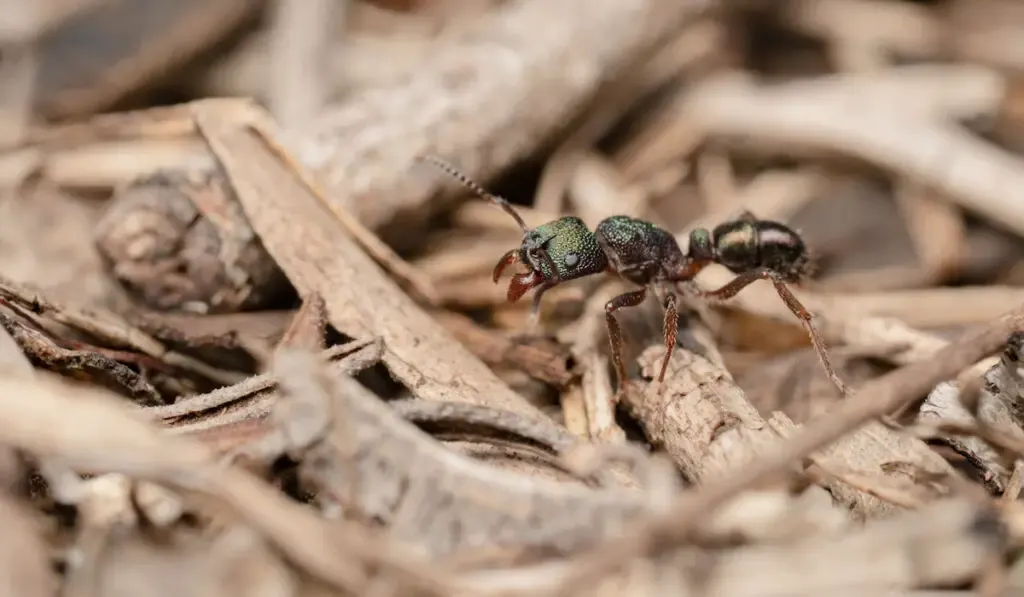
Pony ants are also Australian. They are also referred to as Green-Head ants. Their stings can be very painful, but the pain does not last long.
But in more serious cases, the venom from their sting will cause anaphylactic shock.
Jack Jumper Ants
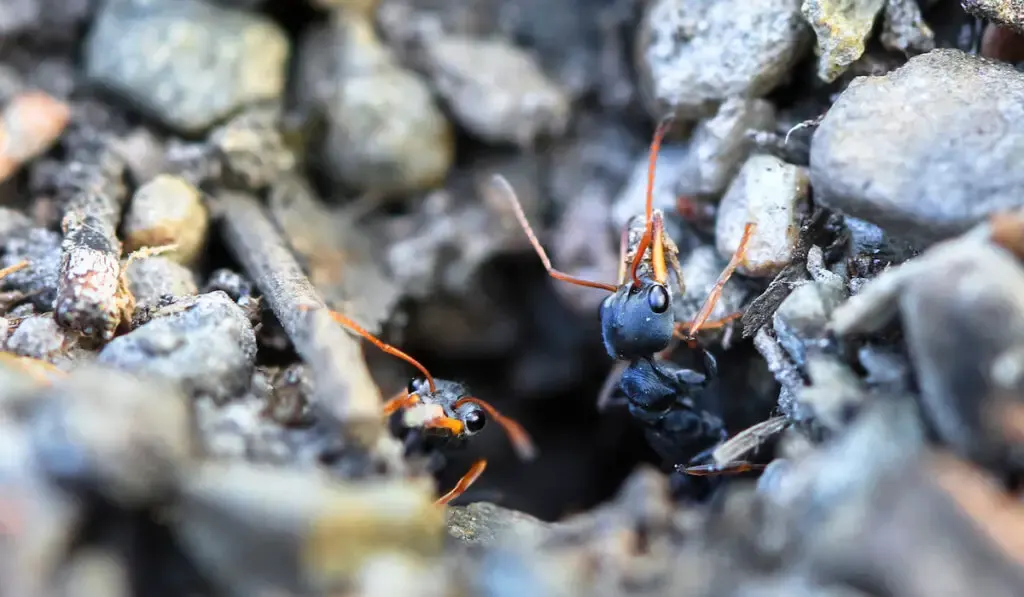
Around 4 people have been reported to have been killed by Jack Jumper ants. These ants look similar to scorpions, and they may as well be as dangerous as scorpions.
The deaths that were caused by Jack Jumper ants were not caused only by the bites. Further studies revealed that the deaths may have been due to heart attack, irritation, severe inflammation, and even shock.
Studies have also indicated that Jack Jumper ants can suppress the immune system. So, this type of ant can be dangerous in more ways than one.
Safari Ants
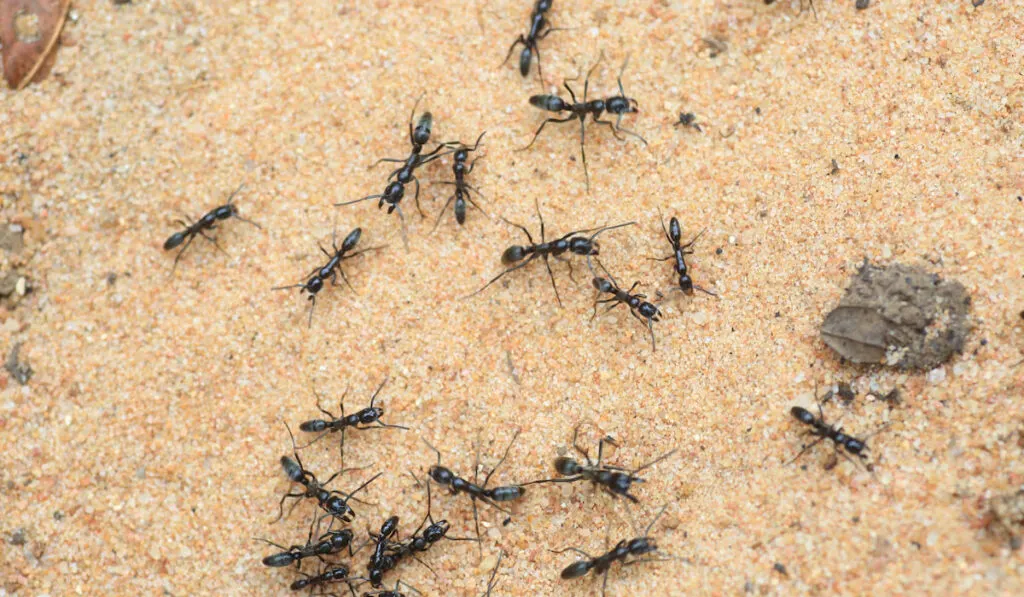
Safari ants would attack both their prey and predators in numbers. Then they would devour their target.
Safari ants are typically found in Central Africa and East Africa. They move around in colonies but have no nest. On average, they eat around 500,000 prey animals in a day.
Pharaoh Ants
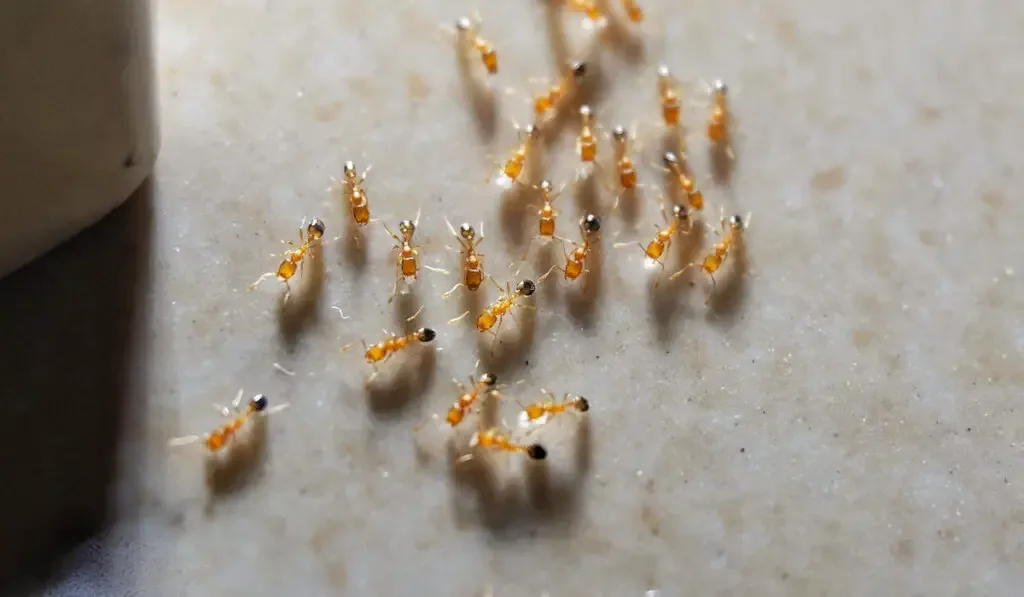
The bite of Pharaoh ants is usually not a problem. They could be painful, but one or two bites would do no harm.
The real danger with Pharaoh ants comes when they infect wounds or food with the pathogens they carry. Some of the pathogens they transmit include streptococcus and salmonella.
Resources
- https://lakenormanpest.com/top-8-dangerous-ants-time/
- https://www.bigbluebug.com/pest-identification/profile/pharaoh-ants
- https://www.toptenreviews.com/the-worlds-most-dangerous-ants
- https://acaai.org/allergies/types/insect-sting-allergy
- https://www.millerthekiller.com/about/our-blog/ant-bites-everything-there-know-and-beyond
- https://www.npr.org/sections/health-shots/2013/03/04/173424247/best-defense-against-fire-ants-may-be-allergy-shot-offense
- https://www.americanpest.net/are-ants-dangerous
- https://www.quora.com/Can-ants-kill-you-If-so-how
- https://www.batzner.com/resources/blog-posts/centipedes-and-ants-and-bees-oh-my-10-of-the-deadliest-insects-in-the-world/
- https://www.usatoday.com/story/life/2015/07/21/12-animals-more-likely-to-kill-you-than-a-shark/30479437/
- https://www.cooperpest.com/blog/can-house-ants-harm-me
- https://www.quora.com/What-will-happen-if-a-human-eats-a-live-ant
- https://www.researchgate.net/post/What-level-of-formic-acid-ants-may-have-What-level-can-affect-human-health-if-ants-are-ingested-through-food
- https://www.quora.com/Neuroscience-Is-it-possible-for-ants-to-enter-our-ears-and-reach-our-brains-causing-damage-while-we-are-asleep
- https://www.hoax-slayer.net/live-ants-in-the-brain-hoax/
- https://aardvarkpestmgmt.com/what-to-do-if-your-dog-is-exposed-to-ants
- https://www.petmd.com/dog/parasites/how-identify-and-treat-ant-bites-dogs
